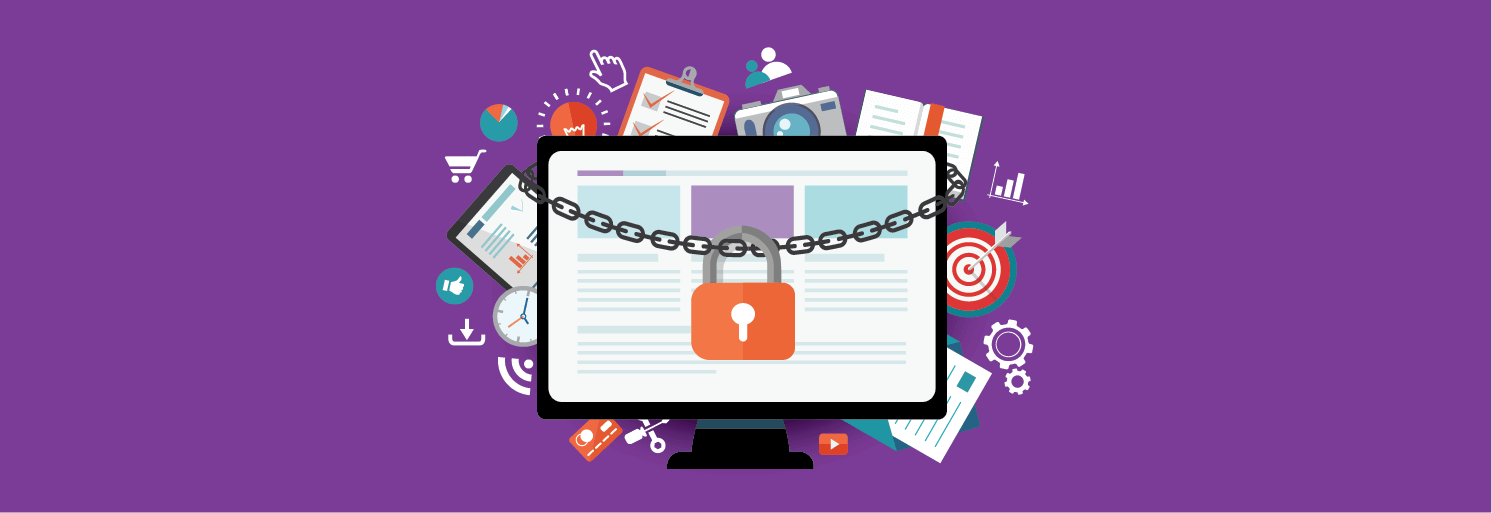When you choose to market content online, you aren’t just selling raw information: you’re selling your company’s reputation. No matter how valuable your company’s knowledge and expertise may be, it amounts to nothing if your target market feels uneasy doing business with you.
Just being an honest, trustworthy company isn’t enough in the online world. Your reputation also depends on your competence, particularly when it comes to cybersecurity. According to a study conducted by the Ponemon Institute, data breaches are on the rise as is their cost.
Failure to secure client information could be catastrophic; besides being financially draining and time-consuming to sort through, data breaches also lead to a loss of confidence in your company and a reduction in the number of clientele willing to put their future in your hands.
Understanding the Value of Data
Before enacting security measures, it’s important to understand the why behind it all. Data certainly has value to all parties, but we sometimes underestimate just what kind of value this data can have.
Businesses that market to other businesses keep a great deal of their in-house communications and files private. Sometimes it’s the result of marketing strategies, while other times company secrets just aren’t meant to reach the public.
A data breach can be a colossal setback for several reasons:
- Client companies may take legal action against you
- Loss of corporate secrets is likely to push progress back several months
- Clients that don’t pursue legal action are almost certain to cut ties with your company
A breach may also force a restructuring of your systems to accommodate new standards. In the long term, that may be beneficial, but you’ll immediately be faced with costs of training, technology, and reorganization.
Heading these problems off at the pass is, therefore, vital.
Controlling Access
When your company markets content, it’s important to compartmentalize access to your resources because keeping everything totally open puts the entire system at risk. By controlling who can access which accounts—for instance, your social media accounts vs. your website—you can mitigate damage and even avoid major incidents.
For that reason, periodically review what resources your team members have access to. Some instances may actually require an increase in access, but in most cases, you’ll find that your newsletter team doesn’t need administrative login credentials to your billing and accounting.
One other thing to keep in mind: as employees leave or are let go, be sure their account access is revoked. Your marketing campaign could easily fall victim to an angry ex-employee if their access isn’t voided once they leave the company.
Keeping Accounts Safe
One of the biggest mistakes employers and employees alike make starts at the very most basic level: account details. In this case, we’re talking about how you log in. Usernames aren’t especially a major issue, but passwords are a colossal problem. The first step is to understand what makes a good password and sharing that information with employees.
Examples of bad passwords include:
- anyword123 (e.g. marketing123; passwords composed of dictionary words and without symbols or capital letters)
- 11132016 (significant dates, such as your birthday or anniversary)
- Reused passwords
Strong passwords, no matter the party, should be composed of a mixture of lowercase letters, uppercase letters, numbers, and symbols, and avoid real words. Length is an issue as well; avoid passwords less than seven characters long.
Managing Your Social Connections
Businesses judge one another based on everything they can see. Any good content marketing group is going to have social media connections. The benefits of interacting with potential customers and demonstrating your expertise are obvious enough.
What isn’t always obvious is how risky social media pages can prove to be for security purposes.
Unfortunately, social media is plagued by a mixture of hackers, trolls and other miscreants looking to create problems. Open commenting makes their job much easier because they can post bad links and malware right out in the open.
You need to ensure whoever is in charge of your social media pages stays on top of moderation. Removing dangerous links and unpleasant commentary is an important step in maintaining both your company’s image and the security of your clients. Imagine a potential client visiting your social media page and having their computer hacked because they visited a scam link posted on your page!
Keeping Backups
Digital content isn’t immune from being tampered with and deleted. No matter how secure you believe your data might be, there’s always a chance it can be lost to any combination of user error and malicious activity.
That’s why it’s so important to maintain physical and digital backups of everything from your websites to client data. Hard copies aren’t the most convenient means of storing information, but they can be stored offline away from the dangers of the internet.
Online backups are convenient and easy to perform more frequently as there are numerous services available that will perform the backups at set intervals. Just be sure access to those backups is secure.
Training and Educating Employees
Content marketing requires a certain set of skills, but that skill set doesn’t always include security competency. Some of the most talented writers and authors practice some of the worst security habits. But you have the opportunity to change that.
- Providing training regarding the latest threats and scams on a semi-regular basis not only increases competency, but it also provides a way to gauge how unified the company’s interests are.
- Hosting miniature seminars or offering a monthly security newsletter can help keep your company up to speed with the most current risks. Just be sure everyone takes it seriously—not all employees view company meetings as a service.
Staying Current
Successful companies value being on the cutting edge, and in no area is that truer than with software and systems. Updated operating systems and company software can provide fixes for security loopholes and exploits discovered by hackers.
Sometimes updates can present problems if company software isn’t compatible with the newest version. Before updating, make sure your programs and apps will still run; otherwise, you risk losing major functionality and time rolling back to an older, more functional version.
As a bonus, being familiar with and using the latest updates also demonstrates a type of competency clients are sure to be looking for.
Conclusion
A lot can go right if you market your content safely; the reverse is equally true. Utilizing security software and services minimize the likelihood of a data breach, as will educate your team about the latest threats and how to avoid them.
Minimizing your risks by backing up important data and maintaining the most recent versions of important programs save you money and headaches in the long-term. Maintaining control over your social media accounts is another valuable security process.
Whatever you decide to do, don’t stop learning new things about content marketing. The business is constantly evolving, and it pays to stay ahead. If you have any thoughts or concerns, please leave them in the comments section.




